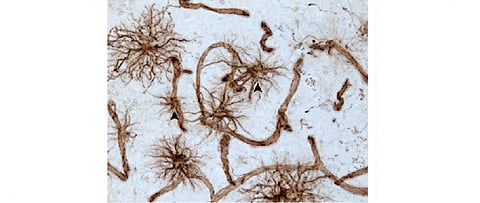

A common characteristic was found in the brain structure of people who died by suicide — there was a sharp fall in the density of a particular nerve cell throughout the brain. The observation was made in a report published by scientists from Douglas Mental Health University and McGill University in Canada on February 4.
The researchers took brain tissues from 10 men who were suffering from depression and died by suicide and compared it with those of 10 others who died suddenly and were never diagnosed with depressive conditions.
They found that the number of astrocytes, a type of supportive nerve cells, was much lower in brains of people who had died by suicide. Three regions of the brain that are considered to be responsible for emotion regulation — dorsomedial prefrontal cortex, dorsal caudate nucleus and mediodorsal thalamus — were the focus of the study.
The density was five times lower in the mediodorsal thalamus and caudate nucleus and half in the prefrontal cortex in the subjects who had died by suicides than those who had no psychiatric conditions till death.
Astrocytes, which look like the end of a frayed rope, belong to a category of cells called glial cells. Till a few decades ago, these cells were considered to be simply helper cells that provide nutrition and structural support to the neurons. But recent studies done on animals have underlined their active role in neurotransmission.
“Astrocytes can strongly modulate most facets of neuronal activity, including neuronal firing, neurotransmitter synthesis, neurotransmitter reuptake and synaptic transmission,” the paper noted.
The authors have pointed out that the human cerebral cortex has a larger volume and faster variety of astrocytes than that in mice. So, their role in the human brain will be much more significant.
The research also noted that depression impacted the quantity of these nerve cells rather than their structure. It, however, doesn’t establish the reason behind this depletion of astrocyte volume.
Earlier studies had also highlighted the role of astrocytes in depression. “We show here that it happens throughout the brain rather than in one specific brain region,” Liam O’Leary, one of the authors and doctoral candidate in the psychiatry department, McGill University, told Live Science, a science news website.
Because the quantity of astrocytes in the human brain plays a significant role in depression, medicines that induce growth of these cells or curb their depletion could be a probable treatment for the disease, the authors said.